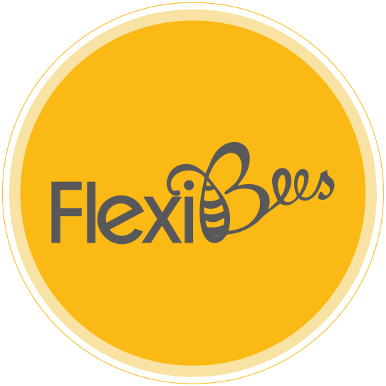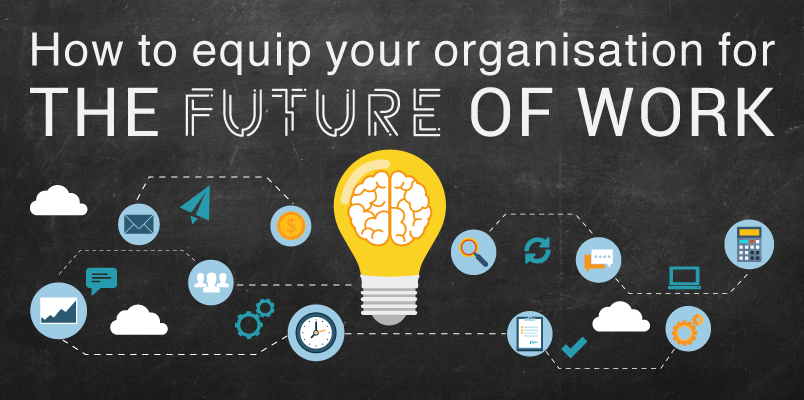How to Equip your Organisation for the Future of Work - Part I
Throughout my career, I have been a business person - Sales, Marketing, Communications, Branding - believing these to be crucial to the growth of any organisation. But now, after having been immersed in the world of talent solutions for two intense years, I am happy to say my horizons have broadened (a big draw of being an entrepreneur by the way) and I cannot emphasise enough the role that Human Resources plays or can play along various aspects of what makes organisations tick. Especially today, with the world around us changing so quickly, from technology to the way people want to work, the need of the hour is for leadership to also be thinking about how best they can adapt to these changes; Human Resources plays a unique role here.
Recently, FlexiBees partnered with Transformance Forums to organise a summit discussing the Future of the Workplace. The people attending were leadership from Human Resources, Transformation and Digital Teams of top organisations - all with keen interest and stake in kitting their organisations with new ways of working.
The whole day was packed with insights, and my one strong take-away was that leaders across organisations are thinking about how to prepare themselves for what is to come. Here below is the first of a three part series on the key insights from the event, which I reproduce here specifically with the intent to help readers think and evaluate future strategies for their own organisations.
Part I: How Work is changing:
There was a lot of talk on how work is going to change or in fact already has, with the gig economy taking centre-stage, offering benefits of agility, quick scale-up, specialised skill-sets, and optimised costs to businesses; another aspect of work changing that was discussed is the changing skills landscape with a need for certain skills over others.
Skills of the future: We hear unendingly today about the increased need for Analytics, Big Data, AI-ML kind of skills given the relentless shift towards data capturing and automation, but the leaders in this conference emphasised the need for a different kind of skill-set as well. Nirav Jagad, Chief People Officer, Nykaa, spoke about how India needs to upweight itself on two sets of skills - problem solving and STEM, but also Leadership, Risk Management and Creativity. This was later dwelled further upon by Captain Raghu Raman, President Risk, Security & New Ventures, Reliance Industries, who spoke about how STEM skills are undoubtedly critical in this changing technology environment, but with work environments getting more complex, with diverse groups and sections of society working under the same umbrella - which might include a humanoid class of workers tomorrow - with the turnaround time for decision-making reducing even further, and global connectedness increasing the stakes even more, with all of this happening at the same time, the real game-changers will be people who can combine their left-brain chops with right-brain high-on-EQ collaborative leadership and decision making.
Rising importance of the Gig economy: No discussion about the future of work today can be complete without the gig economy. This space is too small to talk about the trends leading to it and the multiple benefits it has for businesses, but this conference provided the ideal platform for exactly this discussion. I went all guns blazing on behalf of FlexiBees, painting a vivid picture (one hopes) of a changing global environment that values agility above all and the changing talent or human landscape with workers wanting more autonomy and flexibility - an equation that emphasises the need for flexible working in general and gig talent or hiring of experts from an external pool in particular. To read about these benefits in more detail, go here, here and here.
Turns out I need not have pressed my point, because it seemed that the leadership in the room was quite aware of the benefits and in acceptance of the wisdom of gig talent. However, I thought then and I think now, while they i.e. organisations and their leadership might be aware of it, even thinking about adopting it, are they prepared for it?
It’s a subject close to my heart and when someone from the audience voiced it in the form of a question, it gave me the chance to speak about it. And the answer is No. Organisations today, especially large ones, want to use the gig economy, but need to do some critical thinking and build certain capabilities before they can truly harness its power, namely -
- A new approach to talent thinking at the very core - where leaders in business and HR decide which jobs & tasks would benefit from hiring expert talent from outside and as next step flesh them out as modules with tight scopes and milestones
- Since gig workers have different motivations from traditional employees (less emphasis on promotions, ratings and perks), they need to be hired and nurtured differently - with incentives and contracts that work for them
- Since a lot of the gig worker pool tends to be remote and flexible, the way organisations track and monitor its workforce will need to evolve. This is both with respect to technology (remote swipe-ins, video calls, open communication lines through messaging platforms) as well as mindset. In fact, mindsets hugely need to change - from time-spent-in-office metric to work-delivered metric - not just of leadership but of every manager and peer who a gig worker will be reporting to or working with
- And that brings us to Culture - that indefinable force - that makes our organisations what we are. How are we to create a culture of meritocracy, speed, customer orientation, collaboration, what have you, when a significant part of our workforce does not breathe the same air as we do. It’s an interesting question, which needs to be thought through and measures for which need to be put in (FlexiBees is truly a remote & flexible organisation, as well as many others. You can speak with us or read up on others to understand how to build culture while being a geographically distributed company.)
And that brings us to technology - a subject that was present as an underlying theme across, and many times discussed overtly - specifically the subject of how technology will facilitate the future of work. There was talk of present cutting edge technology like AI assistants, online collaboration platforms (like Workplace from Facebook), Gamification to incentivise your employees, and IoT as a means to achieve a variety of things like energy conservation and better crisis management. Personally, I was stunned by how a lot of stuff which seems like it is in the future is being adopted by legacy organisations with speed. In terms of how these will aid the forces of changing work - there are multiple use cases, a couple being - AI assistants can help gig workers sitting at home access the org support system at the touch of a button, online collaboration platforms are crucial to sharing knowledge, creating a learning culture, and improving connectedness while being geographically distributed.
But by far my favourite technology of the day was when Geetanjali Shinde, Head Corporate HR, Writer Corporation, spoke about virtual and augmented reality and ways in which these technologies can be deployed for better enabling the workforce of the future. One example is Holoportation - check it out - that removes all barriers of space and geography. Very Harry Potter-ish. However, she also spoke about the pitfalls of technology, as did others, specially emphasising concerns around data privacy and protection that even today’s cloud systems are unable to completely tackle, let alone VR.
So here we are, at the end of this part of the highlights of the day. This space can be overwhelming for some, and overly faddy for some others, given everyone is talking about the future of work today. I hope I have not added to the confusion, but managed to break it down a bit in real terms, and spark some thoughts among readers on how they want to keep pace with some of these changes. Of course you will have to do your own research, but hopefully you have some starting points now.
Adios, till next time!
If you have a job requirement, take 2 minutes to fill our form and we will get back pronto.

